Results
-
£87.00
Stronghold (Bra) - Jacques Claivoz
This Swiss composer (b. 1971) played flugelhorn and principal cornet for a long time with 'Ensemble de cuivres Valaisan' and started composing in 2011. This concertwork consists of three consecutive movements: Battle - Song - Dance.
Estimated dispatch 7-14 working days
-
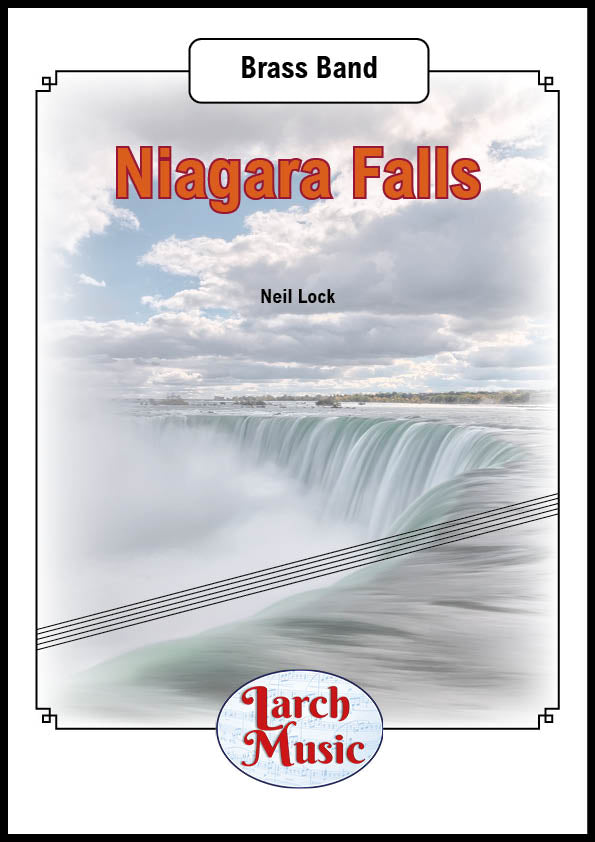 £30.00
£30.00Niagara Falls - Brass Band - LM597
COMPOSER: Neil LockThis descriptive piece commemorates a visit I made to Niagara Falls back in October 1984.At the beginning, the music is very quiet; the falls are a long way away! But as it progresses, the noise of the falls becomes louder and louder. The piece has three principal motifs, whichrun through most of it. Descending crochets signify the water going over the cliff, and risingquavers the spray coming back up. And the frequent discord (a major chord with anadditional 2nd) represents wetness.Right after my first sight of the falls, I see the "Maid of the Mist" boat phut-phutting outinto the stream, with horns and E flat basses on the off-beat. There is also an "Indian"war-cry in this section from the trombone, euphonium and B flat bass. Then, an extendedclimax describes my first view of the full majesty of the falls.After this climax dies away, I go up the tower near the falls. The music goes into the minorkey, and loses the discord. It isn't wet up there!In the final section, I stand close to the falls; almost close enough, it seems, to put an armin. The music becomes very loud. Twice I look aside, but when I turn back the falls are stillthere. At the end, the descending crochet motif takes over entirely, and a timpani roll isfollowed by a classic final chord.
In Stock: Estimated dispatch 3-5 working days
-
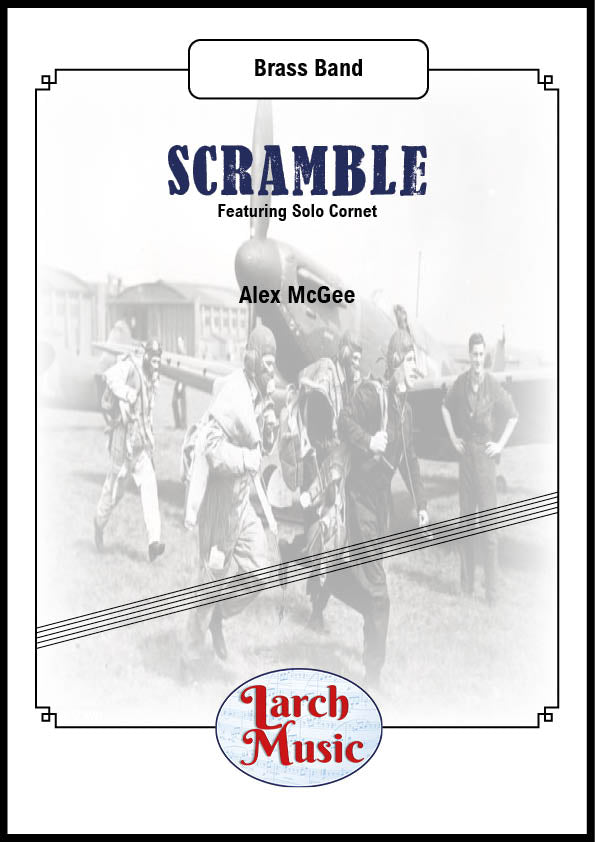 £25.00
£25.00Scramble (Alex McGee) - Cornet & Brass Band Full Score and Parts - LM424
COMPOSER: Alex McGeeScramble was composed for Kidlington Concert Brassto be performed as part of their 2022 series of events.A solo cornet feature, the principal cornet needs his orher wits about them as they take to the skies,musically speaking in their Spitfire.The work was inspired by the history of what is now Oxford Airport,but was in a previous life RAF Kidlington.During WWII numerous squadrons were based there as forwardoperating Spitfires were a staple of the bases arsenal.Scramble is told from the perspective of a young pilot,a begins with him in a troubled sleep,which is shattered by the wail of an air raid siren.From that point we rushed to his aircraft and races into theskies to defend the United Kingdom as one of 'the few'who prevented the risk of invasion during the legendary Battle of Britain.This work is dedicated to all those, in the air and on the ground,and of all nationalities who served in the Battle of Britain.
In Stock: Estimated dispatch 3-5 working days
-
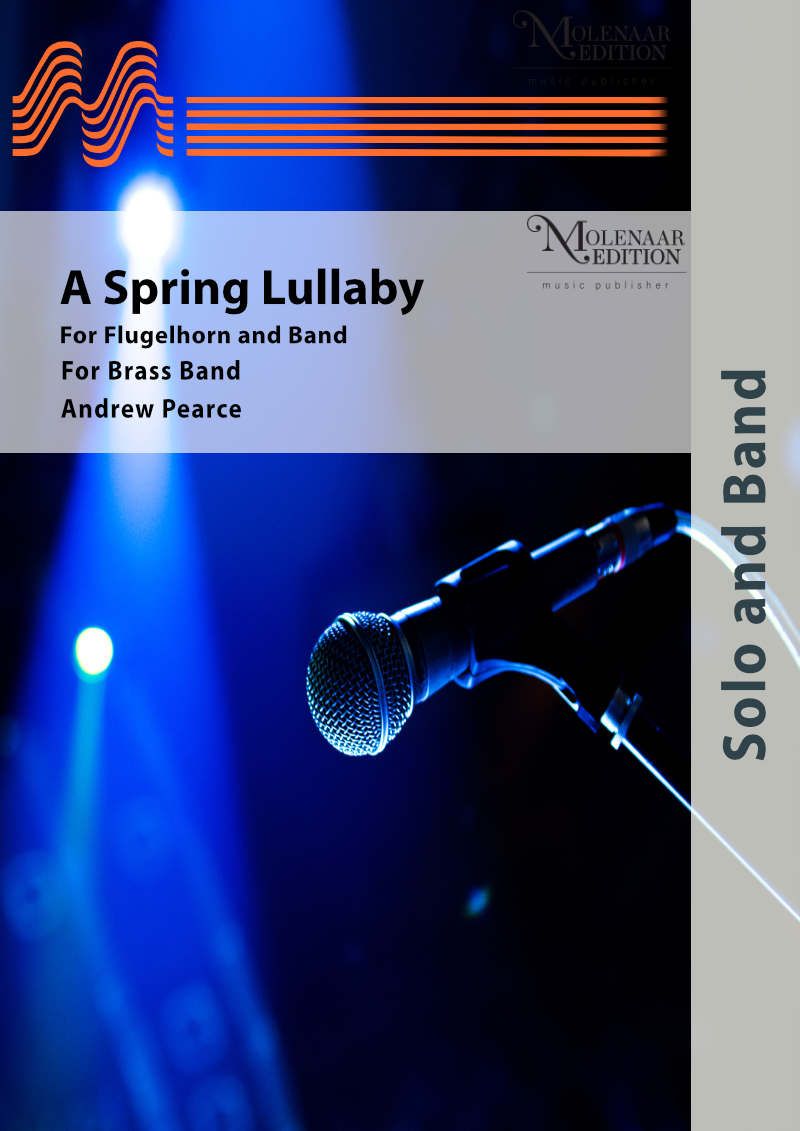 £76.00
£76.00A Spring Lullaby - Andrew Pearce
During the past few years, Andrew Pearce enjoyed a fruitful collaboration with Phillip Cobb, principal trumpet of the London Symphony Orchestra, composing such works as The Maestro and Interlude for his album in 2012. Later Cobb invited Pearce to compose a slow melody, accompanied by the Central Band of the Royal Air Force for Cobb's upcoming album, displaying his softer, expressive side on flugelhorn. This song-like, warm lilting lullaby reflects on the joy of life.
Estimated dispatch 10-14 working days
-
 £189.00
£189.00The Maestro - Andrew Pearce
The Maestro, a concertino voor trompet en band, was commissioned by Philip Cobb, principal trumpet of the London Symphony Orchestra. I spent most of Summer 2011 in Prague and London composing this demanding piece, for this was a wonderful opportunity to write a large scale work for one of the world's finest Trumpet virtuosos and I accepted the assignment with great enthusiasm. I also felt a great responsibility to deliver a tour de force for this world class player that was both challenging and enjoyable. Phil was seeking melodies and themes in the piece and had enjoyed my album 'Cinema Symphony', and the dramatic vistas it conjured up. Before writing began, I listened to his beautiful album 'Life Abundant' many times, ensuring I had his sound in my head while writing. The piece represents the many aspects of a contemporary trumpeter's musical life from; brass band chorale (a homage to Phil's musical roots), to the symphonic concert hall to the film recording studio. I am delighted to have had Phil and the International Staff Band record this work under the baton of Dr Stephen Cobb. Its a tour de force not only for the soloist but also for the band and should be an exciting challenge for the very best bands out there.
Estimated dispatch 10-14 working days
-
 £34.95
£34.95Quicksilver (Solo for Eb flat Tuba - soloist grade 8, band 3+) - Paul Lovatt-Cooper
Quicksilver is a concert showcase for the E flat Tuba specially commissioned by Tuba Virtuoso Perry Hoogendijk. Perry is Principal Tuba with the Royal Concertgebouw Orchestra based in the Netherlands and wanted new repertoire for the instrument.
Estimated dispatch 10-14 days
-
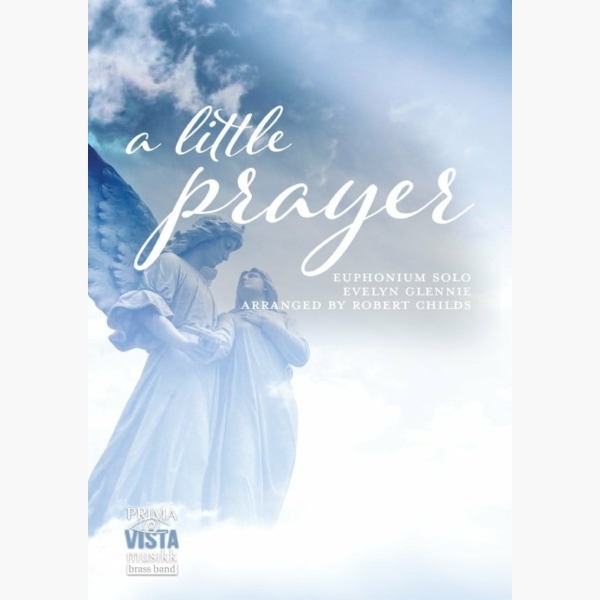 £29.95
£29.95A Little Prayer - Evelyn Glennie - Robert Childs
Originally composed for solo marimba, this popular version ofA Little Prayerwas made in 1998 following Evelyn Glennie's collaboration with Black Dyke Band during the recording of their Grammy nominatedReflected in BrassCD.Robert Childs, then principal euphonium with Black Dyke, requested Evelyn's...
Estimated dispatch 5-7 working days
-
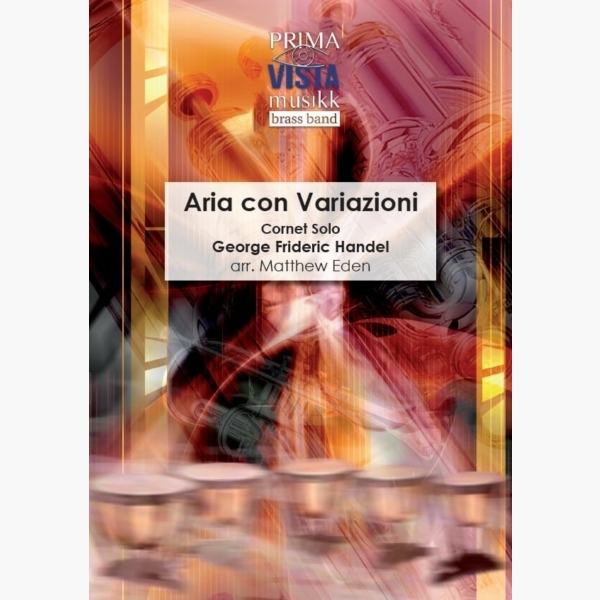 £29.95
£29.95Aria con Variazioni - George Frideric Handel - Matthew Eden
This set of variations on Handel's well-known theme The Harmonious Blacksmith was originally commissioned by Mark Wilkinson, principal cornet of the Foden's band. The solo part stays largely faithful to the original keyboard work (which has since been arranged for...
Estimated dispatch 5-7 working days
-
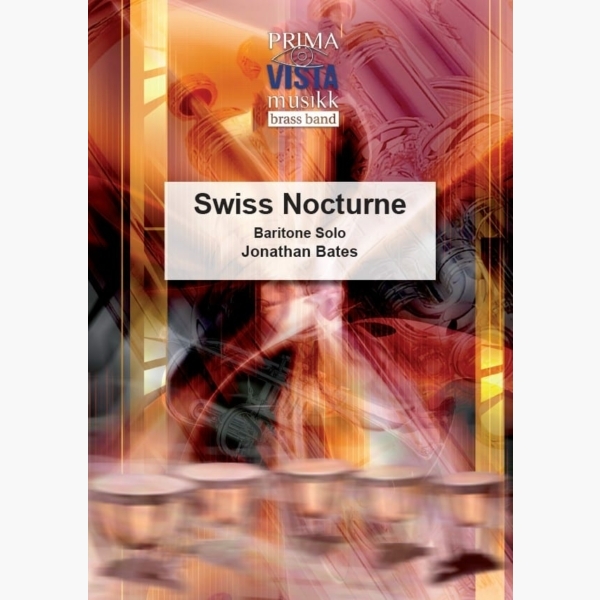 £24.95
£24.95Swiss Nocturne - Jonathan Bates
Swiss Nocturne was composed for Flowers Band's Principal Baritone Ben Stratford. One of the UK's leading baritone soloists, Ben was the recipient of the 'Best Baritone' award at the 2014 Brass in Concert Championships and is a music student at...
Estimated dispatch 5-7 working days
-
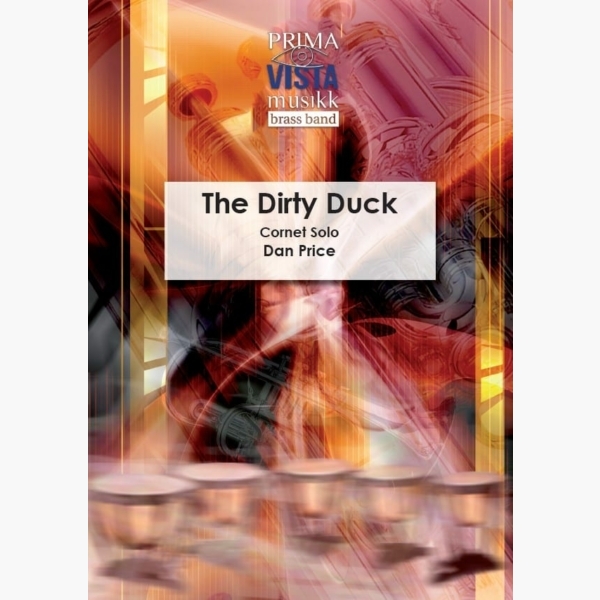 £24.95
£24.95The Dirty Duck - Dan Price
Tom Hutchinson commissioned a cornet solo from up-and-coming composer Dan Price in 2009 to mark the beginning of his tenure as principal cornet with the Cory Band. Tom was looking for a solo that was virtuosic in content with jazz...
Estimated dispatch 5-7 working days


